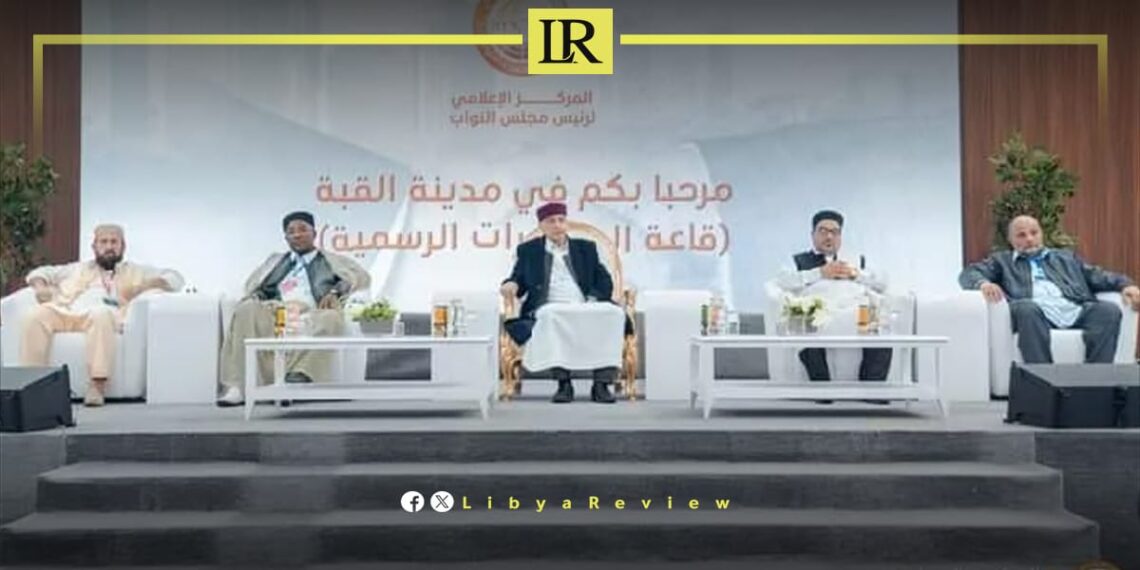Libya’s Speaker of Parliament, Ageela Saleh, announced plans to issue a Transitional Justice and National Reconciliation Law in the coming days.
Saleh emphasised that the law is the result of discussions with social groups, legal experts, and public figures aimed at fostering unity and rebuilding the nation.
Speaking after meeting elders, youth, and women from the western region, Saleh outlined that the law is founded on principles of fairness, justice, and reparation. It seeks to resolve long-standing grievances, compensate victims, and promote both social and legal reconciliation. He believes the law will address divisive issues, unite Libyans, and pave the way for national progress.
The Speaker reaffirmed Parliament’s commitment to healing societal rifts, ending hate speech, and fostering dialogue. Since its election, the Parliament has worked towards national unity by enacting general amnesty laws, repealing political isolation policies, and engaging in dialogue with all factions without preconditions.
Saleh stressed the need for an inclusive Libya where all citizens, regardless of region, can contribute to national development. He advocated for decentralisation to allow all areas equal opportunities for growth and modernisation. He called for a political and economic system that avoids marginalisation and ensures equitable access to resources.
On the political process, Saleh reiterated the importance of a constitutional framework and election laws to ensure peaceful power transitions. He noted Parliament’s efforts in passing electoral laws and resolving disputes through the 6+6 committee, which finalised amendments for free and fair presidential and parliamentary elections.
Saleh expressed Parliament’s readiness to engage with all parties committed to Libya’s welfare but firmly rejected external interference and the politicisation of state institutions. He called for unity to steer Libya away from chaos and towards stability and development.


